James Moore's Blog, page 91
January 21, 2016
GoFundMe: A Valuable Tool, Or The Portal To Poserdom?
GoFundMe is an unsurprisingly controversial site. There is a lot to both love and hate about the service – it brings out some really good ideas and allows you to support excellent causes, but also gives credence to some terrifyingly shitty ones. For every good person using it for a legitimate reason there’s a dozen who are really just money grubbers. Suffice to say, there are good, bad, and ugly ways to use your GoFundMe account – and while I certainly don’t recommend using one outside of the direst situations, you need to be aware what implications a GoFundMe could potentially have not just for your band, but also the brand of your band.
For the uninitiated, the fundamental difference between GoFundMe and a Kickstarter is that GoFundMe asks for money without offering benefits. Now this is fine in theory – I’ve seen it used to raise money for cancer treatment and to help people out of financial catastrophes. Of course, we’ve also all seen people who used GoFundMe because they just felt like they could do with a few hundred extra bucks or wanted to fuel their various addictions. The good the bad and the ugly of GoFundMe beyond the music world is readily apparent, but in music things get a lot blurrier, largely because, well – if you haven’t noticed, none of us really have any money in the first place.

Don’t get me wrong – there are some very appropriate uses of a GoFundMe. Most notably I think is when your van breaks down. In a situation like that there is often no recourse other than GoFundMe to compensate for the hard situation you find yourself in. Of course – a lot of other bands just suck it up, or encourage people to buy t shirts, which is also admirable. In many of these cases though, people want to just throw money at the problem and the GoFundMe is launched by a fan or because of fan request. The point being – emergencies like that aren’t the real problem with using a GoFundMe for your band – and if things stayed this way then it would be fine – bands could help each other out when they were in dire straits and that would be the end of the matter. Of course, the people in band are human, and humans screw up. A lot. More than you would think really.
The lines get blurry when people launch GoFundMe’s to fund tours or other traditionally pricey band projects. I’ve seen this happen a couple of times now and I’m starting to get a little pissed about it. Why? Because if you and your bandmates can’t go out, get jobs and save money in order to make three grand between you so that you can afford to go on tour then maybe you shouldn’t be doing this. You don’t need to be self funded, and you really shouldn’t try to be. For a very long time music is going o take a lot out of your pocket and you can’t just rely on fans to come up with that for you because you don’t like working a construction job. It’s great if your fans want to hook you up but in those cases a Kickstarter where one of the perks is guest list passes and a chance to hang with the band might be more appropriate.

That’s not the only time that getting a GoFundMe makes your band look silly and unprofessional. Another common mistep I see is asking for money for recording. Here’s another place where a Kickstarter would make a lot more sense. It’s easy to justify this in your head, “Well the fans are just going to torrent it anyway” or the ever popular “Well it’s not like the label is funding it, why can’t we go back to that older model?” Guess what. This is the model we have, and yeah it sucks. It’s really brutal sometimes and really hard to cope with from a financial perspective. We are all suffering and hemorrhaging money pretty much all of the time. But guess what. We need to get used to it. We have no choice anymore. This entire industry is a pain for everyone involved, so if you’re not ready to put yourself on the line then you might as well leave the hall.
The point being – GoFundMe is a blessing and a curse. It can set your band firmly in poser territory or it can pull you back from the brink of disaster and give you a chance to save a sorry situation. Now – as a general rule, I would recommend against GoFundMe. What you have to ask yourself before launching one is, “Is this accomplishing something that a Kickstarter can not?” In most cases the answer is no. In the rare case that it does (You’re stranded on the road, gear has been stolen, some act of God has made you lose your merch or made it impossible for you to record otherwise) then perhaps it is worth doing. The only other time you can really justify it is when there is a popular demand. As for now though – you simply need to sit back, and realize that your band will probably never need a GoFundMe, and that is almost certainly for the better.
Independent Music Promotions’ (www.independentmusicpromotions.com) revolutionary music PR campaigns are the most effective in the industry. Submit your music to us today.
The post GoFundMe: A Valuable Tool, Or The Portal To Poserdom? appeared first on Independent Music Promotions.
January 20, 2016
Is The Cult Of The Rock Star Dead? Or Has It Just Evolved?
Man – iconic rock stars have been dropping like flies lately, and it really sucks. One thing I’m sure that we’ve all seen though, even before these rock stars started to kick the bucket has been the disgraceful idea that there are no new rock stars. I’m sorry to say it, but if you seriously believe this, then you are a part of the problem. There are a couple of key reasons why there is no such thing as a mainstream rock star and beyond that why maybe this wasn’t really a problem in the first place. There are a lot of basic things here that common music fans are ignoring in order to get to feel superior and claim that kids these days know nothing. If you genuinely believe this, you are old, that’s fine, just be aware.
You regularly see these pieces come up in ‘intelligent’ music media, pieces that ask questions like, “Who will be the next Metallica” When I see things like this all I can think is well man… have you heard about a little band called Slipknot? I don’t really like them either but it’s impossible to deny that they are starting to dominate a similar cultural space as Metallica in the 90’s. “Well they don’t get airplay” you might argue. Well guess what, neither do any Metallica songs that are from before 1990. If you want a ‘modern metal band’ who are getting real airplay then maybe you should look at Five Finger Death Punch. They too fill a similar role. I mean yeah – they only appeal to out of touch heshers, but by the mid 90s, Metallica was in the same place! Five Finger Death Punch and Slipknot shirts have found their way into fairly major retailers. Five Finger Death Punch just did a Euro tour opening for Judas Priest, an opening slot taken by Guns n Roses’ Duff McKagan only four years ago. Meanwhile, Slipknot sell out the same venues that Def Leppard does. If that doesn’t tell you something about the state of rock and roll I don’t know what will.

The point I’m trying to make is that it takes time to grow into rock star status. Sure Slipknot has been around for twenty years, but they’ve been gradually growing – they deserve their spot in the scene regardless of whether or not you like them, I certainly don’t. However they paid their dues for ages before they started to get breaks. They represent modern day rock stars though, similar to KISS in terms of theatrical and over the top stage performances. I mean even KISS started out as Wicked Lester and spent years playing clubs, reminiscent of Slipknot’s roots as Anal Blast.
You see this shift in the status of rock stars in the pop world too, Lady Gaga is nothing if not iconic, as is Adele, breaking boundaries in her own specific way. If you look down through the sands of time you will start to notice that revolutionary figures have always had the same sort of romantic aesthetic – they just become more prevalent the further that you come towards the present. This is really what society has been moving towards for years – a place where everyone can be an iconoclast, and yes, a rock star in their own right.
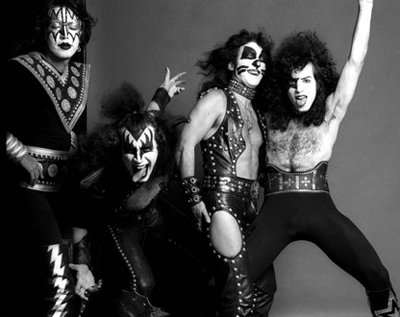
The reason that you don’t see any great overarching figures anymore is twofold. First of all – the industry is fragmented now. It’s a whole new world where each group of fans gets to find their own distinct aesthetic that they happen to love. This is fine, it leads to a more personal connection with the art, which has been a goal of this whole thing for years. However – almost all of this stuff stems from the same creative hub back in the 70s. That’s only natural though – back in the 70s it was much harder to put out a record than it is today, this means that nowadays more people have the chance to create great art, which while it does lead to market over saturation, is still a very good thing. Nowadays it just feels weird because our modern equivalents to rock stars still have to compete with the old guard who have managed to parlay their former glories into long term success.
Beyond that – a lot of these people are only heroes because they survived the seventies. A lot of these bands that we worship didn’t have immense critical acclaim back in those days. Led Zeppelin had no number one single, instead they were like Lamb of God, their records charted extremely well and the (rare) singles were appreciated by die hard fans. Am I saying Lamb of God is the new Led Zeppelin? Not quite – but given that on their current tour they are selling out three thousand person venues I think we could certainly say that they are getting there. I mean yeah Led Zeppelin did it in a shorter time frame but record labels worked differently back then- the cycle allowed you to put out a record or two every year. Nowadays that is pretty much impossible as long as you’re on a significant label.

So is the cult of the rock star dead? Not really. Their are plenty of people on the independent music scene command the respect and have the same sense of authority that rock stars of old did. It’s just that now because our culture is increasingly fragmented there are more and more of them and they have a higher attrition rate. This isn’t because of the age old plagues of drugs and alcohol but rather unintentional social media suicide. That’s just the world we live in now and we are all going to have to get used to it. There are advantages and disadvantages to this – but it’s surprisingly close to the system we’ve had for years. Yet with more information than ever at our fingertips we have even greater variety of choice as to who we venerate as the next generation of music legends. There will always be defining figures, it’s just that now you can more easily ignore them and walk your own narrow path.
Independent Music Promotions’ (www.independentmusicpromotions.com) revolutionary music PR campaigns are the most effective in the industry. Submit your music to us today.
The post Is The Cult Of The Rock Star Dead? Or Has It Just Evolved? appeared first on Independent Music Promotions.
January 19, 2016
When Social Media Outreach Becomes A Bad Thing
Remember when I said a few articles back that despite all appearances, nobody cares about your music? I still stand by at statement – and in fact, there’s a whole lot more to it than initially meets the eye. Not only does nobody care about your music – but if you overmarket yourself then you are going to be on the losing side of things yet again. While there certainly is no such thing as bad press in my opinion (Especially in a day and age that has a diminishing market for negative critique) the key word there is ‘press’ – a word that implies other people are writing about you because you see, writing to much about yourself is almost guaranteed to hurt you.
There’s a couple of key ways that you can generate negative opinions about your band by posting to much. The first, and most obvious is that people get sick of seeing your Facebook statuses about your music. By all means post tour dates, a few cool live pics that your friend snapped, or things of that ilk, but constantly sharing memes encouraging people to buy music (Even worse – specifically your music) Or overposting on Facebook begging people to come out to your shows is only going to get people pissed off. If they are interested in underground and local music they probably have a whole bunch of bands that they are into – and while yours may be on of them, oversaturating relative strangers with content is not usually the way to win their favor. On a similar note – mass messages to Facebook friends and fans is rarely going to ed well either. While it certainly could be valid doing it no re han once a year will keep you in your friends good graces.

The same goes for PR campaigns. While getting multiple PR campaigns at once is often a good idea, I feel like capping it at two is probably your best bet unless you know that they are going after different markets. I’ve had multiple media friends complain to me about bands who hit them up to much, it’s easy to forget when you’re in a small local scene that people like me get hundreds if not thousands of records in a week. There’s only so much that a guy can do though. I cover something like five hundred to seven hundred and fifty bands a year, which is a heck of a lot if you don’t mind me saying – but that’s really just the number of bands who get in touch with me in a two week period. If a band keeps nagging me to cover them and filling up my inbox I am almost inevitably going to get frustrated and block them as a sender. This isn’t because I’m a dick, it’s because I have a whole bunch of stuff to write about and until you definitively prove to me that your band is worth it I am not going to be willing to cover you. I don’t think this is because I’m a jerk, but just because I am so gosh darn busy.
It’s easy to see where a lot of this stemmed from though. Ever since Facebook made it a lot harder for bands to get their content out in front of their fans it’s become a dog eat dog and every man for himself kind of world. And that’s actually really scary. I don’t think that anyone wants to have to cut their friends throat in order to survive, but we’re getting to the point where it increasingly looks like we don’t really have a choice. You need to pay quite a bit to get the word about your band out there and then when you do that people call you a poser. Of course – that’s just what the Man wants. What you need to do is to look at this pain and instead use your platform to promote your friends bands. Yes, you need to be careful to become ‘that guy’ in the worst sense of the term – but you do need to be someone who actively contributes to your scene.

It’s increasingly difficult to get the good word of your music out there these days, and I don’t really blame you for hiring to many PR companies or posting to much about your band. It really is annoying to other people though and it’s going to make them less likely to work with you it simply makes you look unprofessional, and non of us can afford that. There’s an appropriate way to write about your own music. If you’re not sure how – just look at the Facebook pages of your realest and most successful friends. They’re probably full of self promotion, but also dotted with moments of self deprecating humor and more often than not a very real bitterness that probably needs to be treated, that’s a different story though.
What I’m trying to say is that while it’s great that you are using your own social media pages to promote your band, you need to be careful with how much you do it. None of my friends in major signed bands post about their own group more than once or twice a week, and they never ask for people to buy their records. Instead they share pictures of their rehearsals or silly moments from the studio. They don’t share their own songs or write long treatises about how music was better back in their day. They’ve figured this stuff out on their own, and you slowly need to do hat too. It’s not an easy process and it’s certainly one that is easy to mess up – but by the end, people will appreciate working with you more because thy don’t feel like you are trying to shove your product down their throats.
Independent Music Promotions’ (www.independentmusicpromotions.com) revolutionary music PR campaigns are the most effective in the industry. Submit your music to us today.
The post When Social Media Outreach Becomes A Bad Thing appeared first on Independent Music Promotions.
January 18, 2016
Music Marketing for Musicians – The Problem with Immediate Culture
Music marketing is not as common a thing as you may think. The fact is, most artists would rather make up a concept about it than learn about it. When I released “Your Band Is A Virus” and launched Independent Music Promotions, I was surprised at how seldom terms like ‘music marketing’, ‘music promotion, and other similar phrases were actually being searched in Google. For example, as I check right now in my Google Adwords keyword research tool, I see that ‘music marketing‘ has been searched an average of 1,600 times per month for the last 12 months across Canada and the United States. How about ‘music promotion‘? 2,400.
Are you as shocked as I was?
Do you see a problem with this? What this essentially means is, when you see Facebook memes that say X percentage of musicians fail to earn minimum wage, you know that it’s not a statistic you should pay any mind to. I knew early on that “Your Band Is A Virus” (my music marketing book) may catch on among musicians who want to promote themselves online, but I also knew that this was a very niche audience indeed.
Is it any surprise that there tends to be so much confusion on the topic of music marketing? You have the numbers now. Most of your fellow musicians are more interested in studio time, jamming, and just about every other aspect of being involved with music – except music marketing. On the positive side, this gives you, the interested reader, a serious advantage.
The greatest folly for a musician is not necessarily the absence of music marketing knowledge, however. It’s what they fill the knowledge gap with.
This is where I want to get into the heart of this article. From “good music will always be found” to “streaming services aren’t worth it”, horrid mythologies abound in the independent music world.
But that only covers the Hydra’s heads. The Hydra’s heart, perhaps, is immediate thinking. Perhaps we got it from growing up seeing Nirvana rise seemingly out of nowhere. We weren’t shown the years of intensive practice that led to the success. Perhaps it’s from the overabundance of data and analytic online tools at our disposal. We receive reporting for just about everything, and everything seemingly has an algorithm we can conquer and use to our advantage.
What we often fail to see, though, is that we tend to view our results on a micro-transaction basis. Long-term thinking is extremely rare. How is this a problem?
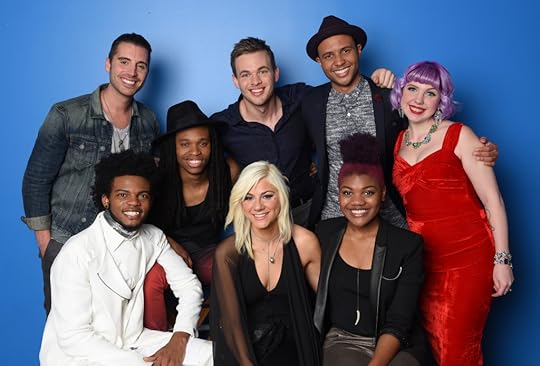
It’s possible that some of our expectations of immediate results in music marketing come from the overabundance of karaoke shows such as American Idol.
A short term thinker will argue the merits of, say, investing in anything. Let’s take hyper-targeted advertising on Facebook for your music marketing as an example.
“What will we get out of it?’
“How many Soundcloud plays are guaranteed?”
“How many sales will it generate?”
If you find yourself holding off investing in your music because too many of these sorts of questions plague you, you suffer from a terrible case of immediate or short-term thinking. Popularity ALWAYS comes first. If you have 150 Facebook followers and you’re expecting iTunes sales, I’m sorry to say that you need to invest in yourself before others will. That’s not a bad thing either.
I can say this because I’ve lived it. Long-term thinking pays off. In spades. But you need to walk the walk and become popular before you’ll get a cent out of it. When I released “Your Band Is A Virus” and launched Independent Music Promotions, no one knew about me. I had no following whatsoever. I worked 12 hour days for the first 2 years I was in business. I lived on a budget and reinvested funds into hyper-targeted advertising. I had no choice. You wouldn’t be reading this if I didn’t.
I pitched myself to any music industry publication I could. That’s why you’ve probably seen interviews with me, articles written by me, etc. Each one took hard work to reach you. I worked heavily on SEO for the first 2 years, and then I hired a professional to help me take things a step further. I invested because I knew it would be worth it. Now, as a result, when you type ‘music promotion’ into Google, Independent Music Promotions is right at the top. It took a lot to achieve that.

SEO is key for music marketing
I’ve invested an insane amount into SEO, Google Adwords, Twitter and Facebook advertising. Now, we have a larger social media following, as far as I know, than any other PR company worldwide. We get a lot of traffic on this site due to past efforts.
So what’s the point of all this? Your past investments and your past efforts pay off for you in the present moment. In spades. I used to put thousands per month in advertising. Now I don’t need to advertise. Don’t envy me though. I lost a few years of my life building this company, years where I could have been creative and work on other projects.
But I want to stress to my musician audience that long-term thinking pays off. Invest in yourselves. Get used to it. Feel good about it. You’ll never create momentum if you want guarantees at step one. An artist I worked with invested much more than just about any other band on their Facebook advertising. Other bands in their scene thought they were crazy. Then the A&R, touring and management offers started to come in around the point they passed the 25,000 fans mark.
Analytics won’t tell you that. There are no guarantees, but you absolutely must jump in the water to find out what’s in there.
Independent Music Promotions’ (www.independentmusicpromotions.com) revolutionary music PR campaigns are the most effective in the industry. Submit your music to us today.
The post Music Marketing for Musicians – The Problem with Immediate Culture appeared first on Independent Music Promotions.
Is Music Industry Karma Your Key To Success?
Me and my roommate like to watch silly obscure TV shows at night when the workday is done and it’s time to crack a few beers and whip out the guitars. Right now we’re watching a show from the mid-2000’s called My Name Is Earl. It tells the story of a former petty criminal trying to make good by rebalancing his karma. This got me thinking as I sat on my couch this morning hung over from a late night birthday celebration – what do you need to do to balance your karma in the music world? And if we’re being honest – does karma even matter? After all – I’m always saying that the music industry is capitalism at its finest, so worrying about karma really could be viewed as unnecessary – of course, as I’m sure you can guess, this is simply not true – karma is key, especially in the hyper capitalist world of the music industry.
Some people don’t see this though. If we’re being honest – very few people see this, it’s one of the key problems of the industry. A lot of people see the pure capitalism of the music industry and take advantage of that, not realizing that they are in fact screwing themselves over for the future. Establishing your karma goes beyond just being a ‘good dude’ and ‘supporting your scene’ although those are definitely key factors. Establishing your karma is more about proving that you not only are a part of that all-important community (Which we of course discussed in a previous article) but that you are an asset to it.
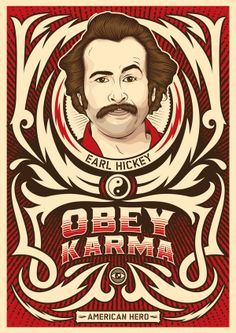
As elitist as it might sound most bands are something of a drain on the scene until they hit a very vital turning point when they start to generate income by drawing large amounts of people to their shows. In my experience this usually happens when you can start getting 30 or more people to come to your local shows and you open primarily for touring bands. Until then people are really doing you a favor by putting you on their shows. Obviously bookers have an obligation to have integrity and not mess up (And Lord knows I’ve messed up a lot) but that’s part of their own karma. If you mess up shows as a booker and ruin peoples days then they are not going to want to work with you. The point being – until you are turning a profit for others, you’re contributing to the scene yes, but really you are asking other people to do favors for you rather than the other way around. You might not like this reality, I certainly don’t, but it’s something that we all need to deal with.
So if your band is in some ways a drain on the scene what do you do to help make it move forward and give the scene a reason to grow? Well – the best bet in my experience is to contribute to the scene in ways beyond your band. Obviously your art is important and should be a priority, but you will find that if you are willing to book shows, document the scene, let bands sleep on your floor, attend all of your friends gigs and generally be a part of what moves the whole thing forward then people are going to want to work with you more. If you are the kind of dude who is at every show and is always just being nice, buying drink and generally being a stand up dude then the scene is going to profit because of you and those who matter will see that.
Yes there are people who really are only in it for themselves and they often do well at first. They set up shows, send out massive amounts of emails, but don’t really bother to care about other bands. They don’t necessarily realize how important their karma is in the industry. But if you become that poser who books pay to play shows and asks for outlandish riders then gradually, no matter how established you are, a new generation of bands who are more dedicated to their core punk principles and DIY ethics are going to come out and start ignoring your work. You need to stay true to the DIY ethos and remember why you got into this thing in the first place – otherwise you are doomed to failure before you begin.

The basic principle of karma is that if you do good things then good things will happen to you. If you look at it in a vacuum that’s essentially how indie music scenes work. If you get your buddy on the list to a show, then he is going to be more willing to help hook up your band with an opening slot with some touring band he knows. If you help to get bands that draw well to a show that your friend is struggling to book then everybody will benefit. These are the types of things that make scene function and help us to find a way forward. It’s not the music always the music that helps establish your band as much as being the guy who everyone can rely on and knows they can count on to help hook up concerts, give advice to others and generally act as a contributing and friendly member of the scene.
It does get better for those who lay it all on the line for their music scene and who strive to be contributing members of something greater – but remember, you can’t count on anyone until they regularly deliver. You need to establish your karma quite a bit before people start trusting you and advancing you the money that you need and deserve. Word gets out about anything you do – regardless of how much you try to hush it up – so if you really screw up, you might be screwed for a while (I have literally moved cities because I messed up so badly in music) but if you do well, well, people just might perk up and work with you to grow the whole scene.
Independent Music Promotions’ (www.independentmusicpromotions.com) revolutionary music PR campaigns are the most effective in the industry. Submit your music to us today.
The post Is Music Industry Karma Your Key To Success? appeared first on Independent Music Promotions.
January 16, 2016
Community: The Biggest Key To Success In The Industry
I know that my articles lately have been kind of bitter, and as I ride out a caffeine high I feel the need to rectify that. I wanted to take a minute to talk about one of the most important aspects of the music industry, if not the most important aspect – the community. This isn’t an article about networking – though that certainly is a part of it. Nor is this an article about building a team to support your music, although that could certainly be seen as an aspect to it too. What this is an article about is how being everyones friend, family even, is always going to be a crucial part of advancing in an industry that is known for being tumultuous and oftentimes unkind.
What people to often forget is that we really have no choice but to be a community. We are a group of people who have come together not just because we are interested in the same things but rather because we have a pure heart wrenching passion for one thing. A passion that stops us from doing anything else – and in a way that’s kind of beautiful. It sees us working harder than ever to grow our names and work to produce a bold new future for our work. The people you see around you in the music industry aren’t just their for shits and giggles, they are there to help move the entire thing forward. They are there to grow the industry and remind us that there is an ethereal power to this whole thing. In other words -they are trying to do it for the same reasons that you are.

I think it’s important to remember this. Even though it often feels like a bunch of crap and like everyone is out to get you there is always a community there. If you look within yourself you can tell who is real and who is basically just a poser. You can figure out these things just by looking at how these people act and conduct themselves – how they carry forward and what they do to figure out their path in this crazy old mixed up universe of ours. Simply put – some people are not okay to work with – and you need to be aware of this. Those people don’t need to be a part of your community, instead you can self select and help to make sure that the people who take part in what you do are among the best of the best.
Don’t get me wrong though – I’m not saying that you should use your community of musicians as something to take advantage of. You shouldn’t be using it as a way to twist or manipulate your way into peoples hearts and heads to get more stuff for your band. There are a lot of people out there who you can take advantage of initially, but in the end if you don’t help them in return the will end up hating you. View your community as a natural resource, one that is immensely valuable but that you have to cultivate to really get the best out of. The community is something that we all owe our careers to because it is what allows us to get out there. We all know that you get out what you put in, even if that balance takes a while to assert itself it will assert itself, believe you me. You need to be aware of this when approaching your music community and you need to embrace that. You can’t just go around asking for favors, you need to get your buddies on a cool show now and then, or at least periodically buy them drinks.

Simply put – the community that you are in is everything. It is your future and your past. The reason you get to do what you do and the reason why it is worth carrying on. We are creating art that we all know will have a relatively niche market. We are creating art that is going to guide us all into brave new worlds – but relatively few people will enjoy it, that’s not necessarily a bad thing, it’s just how the market works these days. Yet that smallest slice of pie of the smallest slice of pie is going to be largely comprised of the musicians and music freaks around you who are working with you on creating great art, getting really drunk, and simply collaborating to benefit and grow the artistic process that we all love so much. So if you act like a jerk then everyone will know, and you are going to see your career suffer.
So get out there – it’s not hard to join the music community – in all honesty they probably are desperate for people who are dedicated and passionate about their work to join – most are. You enter and are accepted with open arms, and as long as you not only talk the talk but also walk the walk people are going to take notice, hail your hard work and help you move on to bigger and better opportunites. Setting up these kind of commmunities is not always easy – in fact it can be a right nightmare. But when you get down to it, having a community is really why humans do anything. So go out there – earn the respect you deserve and prepare to carry on, for better or for worse.
Independent Music Promotions’ (www.independentmusicpromotions.com) revolutionary music PR campaigns are the most effective in the industry. Submit your music to us today.
The post Community: The Biggest Key To Success In The Industry appeared first on Independent Music Promotions.
January 15, 2016
The Biggest Thing Young People Don’t Understand About The Music Industry
I’ve spent about ten hours over the past two days researching appropriate festivals and venues to book at for my clients over the next few weeks. Working with bands is a nightmare, you work an obscene amount and then you end up overtired, overcaffeinating to cope and trying not to cry. This isn’t just me being bad at the music industry, it’s just the brutal reality of it all. This isn’t an easy industry to be in, it’s one that is, in a word, futile, incredibly so. Yet we go into this and we deal with it every day because we love it and it gives our lives meaning.
What most bands don’t understand about the industry is that the people who are making it are the people who literally cannot do anything else. The margins have been squeezed to the point that the only people who can really eke it out are the people who have to face the desperate reality of simply being unable to find other work. I know that I’m a pretty useless human being outside of the music industry so I do everything I can to stay involved. This isn’t always an easy or fun task but it definitely is one that I have no choice but to do. It’s the kind of thing that I find strangely rewarding, even if so much of it is just nihilistic frustration and sitting there in tears as you realize that you have no clue how you’re going to pay rent this month.
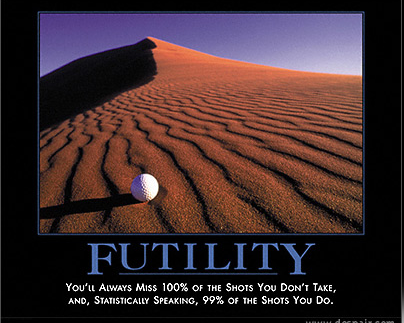
The simple reality is that the music industry is very much grind in this day and age. It is a world where we have to push as hard as we can, and a lot of that involves just sending out bulk emails, spending hours on Google and striving to figure out what the next cool gig is going to be. You need to only be ready to send out massive amounts of emails, you have to positively embrace it. As I was explaining to my best friend earlier today – no matter what you want to think and no matter what innovative marketing strategies you might use – nobody cares. I don’t know why this is, because I care about a lot of bands and invest a lot of time into music. But most people – they just don’t have the time. They care about the two or three bands that they like and that’s just about it. That’s fine too – lots of bands have targeted audiences, it’s just easy to forget that no matter how great your product is, people probably aren’t going to care, until you make them care.
Beyond that – it’s thankless. It only adds to the futility. You might send out hundreds of emails to book a show but your bandmates might never realize this, or worse, they might realize this and just not care. A lot of people don’t understand the effort put in, even if they grasp the work involved. You find yourself running against a wall, beating your head into it again and again and slowly suffocating. Why? Because people just don’t care. This is what young people don’t realize about the music industry – they start up their bands and think they have crossover appeal because all of their friends like them, and guess what, their band probably is okay, but that doesn’t matter. People aren’t going to care. That’s no ones fault, but like I’ve said countless times on this blog – there is so stuff much out there that people just don’t have a reason to give a crap.

I may sound like a bitter old man, and I swear I really am not – there’s a lot I genuinely love about this industry. I had a phone call earlier today that had me running around the apartment cheering and drinking celebratory beers with my best friend. Things DO come together with time. It’s just that you need to start off with the assumption that no one is going to care. Pretty much no one is going to come out of the woodwork and be all “Wow, you sure are doing a great job! I don’t listen to a lot of independent music but here’s fifty bucks for merch!” I mean – there are those people out there, and if you can get them into your band then you’re good – but expecting people to care is only going to hurt you.
It gets worse though. Like with everything else in life – if you are actively trying hard to work on something then your friends are going to make fun of you about it. That’s part of the struggle of being someone who does stuff. Other people get scared by this and do their best to hold you back. Even if you think you have a supportive group of friends just wait until the time comes and you will be shocked by how many people call you silly or a poser. That’s simply how the music industry works. As I said earlier on in this article – it’s only the truly insane people who rise to the top and are able to do anything in this industry.

So what can you do? Lower expectations – face every day with a grim look and the knowledge that you are a part of a movement that this world needs. We need art to keep functioning and to give our lives meaning and we need to keep creating it. If people don’t care, that sucks, but we need to keep constructing our own legacies until people are forced to take notice. No one is willingly going to put out their neck for you unless you show them how it will help them. Like I always say – the music industry is capitalism at its finest and unless you take advantage of that then you are just going to drown out like all the rest of them.
Independent Music Promotions’ (www.independentmusicpromotions.com) revolutionary music PR campaigns are the most effective in the industry. Submit your music to us today.
The post The Biggest Thing Young People Don’t Understand About The Music Industry appeared first on Independent Music Promotions.
January 14, 2016
When Should You Start Making Money From Your Band?
So last week there was a whole lot of hullabaloo about how the singer of Thy Art Is Murder has only made 16-18 grand in the last 6-7 years. I mentioned this in an earlier piece – but I think it might be good to go into how much you should be making off of your music. As odd as it might seem, there is indeed money here – you just need to be able to embrace certain financial realities and realize what it stands for. There are indeed ways to make reliable money with performance too – but odds are you don’t have the musical background to do that – that’s fine though, I hope to get into what being in a band can mean for your financial situation.
There is a prevailing belief out there that your band is going to lose you money. While this is often the case – with a little bit of financial planning you might just be able to make back what you put in and then some. Your number one priority when considering any investment for your band should be ‘Will it pay for itself?’ This applies to merch, PR, and just about anything else. When you ask for money to play shows, at least initially, you should just be trying to cover the rather considerable costs that come from being in a band. That’s before even paying band members.

One strategy that I’ve found is very helpful for bands who are trying to pay for their work with band funds rather than their own money is to have an expense sheet, and then as a result of that figure out how much money they need to be making per show, combining merch and the guarantee to keep making a profit. If you’re not meeting this then you know how much you need to be putting into your band from your own pocket. The thing is though – after initial start up costs the money you put into your band really should be minimal. Once you start to become at least somewhat established as a band it should be fairly easy to be making upwards of 200% profit on shirts and CD’s. If you can find other good branded merch (Bandanas and patches are a good start) then you’re really getting somewhere.
What I think that bands don’t realize is that having a band fund is the best way to circumvent the sticky situation of band finances. What you need to do is keep a detailed spreadsheet of everything going in and out of your band so that when you actually do start turning a profit on your shows then everybody can see that they are starting to gt paid what they are worth. While it definitely is a while before you hit this point You probably need to be reliably making around five hundred to a thousand dollars a show when not on tour to make it work – I know that sounds like a lot – but when you consider that the costs for PR, good management, a booker and general travel expenses among other things (Van breakdown emergencies anyone?) can run a few hundred bucks a show it suddenly makes a lot more sense.
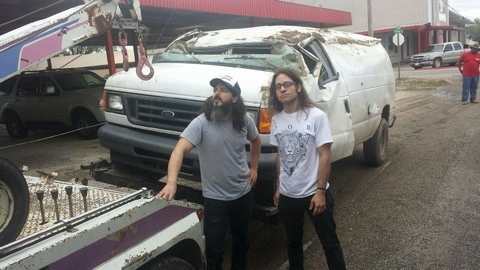
The point being, THIS is an excellent breakdown of how much money a band on Thy Art Is Murder’s level should be making. In all honest – you will probably never get to that point. But, finding a good manager who can set you up to a point where you’re reliably pulling two grand a month when on tour? Any band with a hundred thousand Facebook fans and a can do attitude can do that. Of course – building up that touring infrastructure can take a while. Only a handful of bands make it that far for a reason – but it is still very doable. Still, you can profit on tour even when pulling tiny guarantees, of course – this isn’t an article about saving money on tour (That’s a story for a different day) this is an article about how you too can achieve, how you too can rise up above the crap that defines so much of the industry and makes this so hard for us.
The myth that independent bands are a hobby that are only going to lose you money isn’t really true. I mean yes, it will not make you as much money as if you had a real job, but lets be real – if you’re an independent band who is touring a lot you’re probably not in it for the money as much as you are in it for the life experiences that it brings. You need to remember that if you are making any money off of music then you are one of the lucky few. Remember to be eternally grateful for whatever your band brings you – as hard as you push and as much as you strive it’s always going to be a challenge to survive in this industry. There are no salaried musician jobs until you get to the point that you are literally legendary. Yet you can keep on striving, hping to eventually ull in enough that when you are off the road all you need to do is plan the next tour. The future is now and you may already be closer to this goal than you ever thought possible.
Independent Music Promotions’ (www.independentmusicpromotions.com) revolutionary music PR campaigns are the most effective in the industry. Submit your music to us today.
The post When Should You Start Making Money From Your Band? appeared first on Independent Music Promotions.
January 12, 2016
David Bowie’s Gone: A Tribute To The Man Who Fell To Earth
David Bowie. Geez. While Lemmy seemed immortal, Bowie seemed indelible. Like a part of the landscape. I’d be lying if I said I was a huge fan, but I always admire his aesthetic and his sheer innovation. I, like so manyother young people in the West have memories of listening to him with my dad in the car and feeling freed by his perpetual freak image. This is a man who revolutionized the music industry, not just through some incredible tunes but also a business acumen that changed lives. Perhaps no other man in the history of the business has been able to change the entire thing as much as Bowie did. He lived what I try to write about on this site – and proved that no matter what, if you can embody your weirdness and inner intellect you too can make a difference.
What blows me away about Bowie is not just his far reaching influence, but the way he was able to assume multiple personalities to attack the music industry from every possible angle. Beyond that – he wasn’t afraid to reinvent himself every few years in order to prove that he was the real deal. Bowie represents a lot more than just Ziggy Stardust, the Goblin King or any of the countless other personas that he took on. He represents what it takes to really succeed in he modern music industry. From a marketing perspective the man was a genius and proved that you can create truly great art while simultaneously making yourself into a highly marketable commodity. Be it creating his own film and iconography or pioneering the field of music licensing the man perfectly embodied the can-do attitude of the new school of the music industry and needs to be taken as a veritable prophet.

Now you might be saying, “Well Bowie had millions of dollars to fund his projects and when he came up it was in the peak of the industry anyway!” While this is definitely a valid point if you view the late 60s as the peak of the industry (I don’t, but that’s a story for a different day) Bowie wasn’t doing too good. Yeah he had Space Oddity but then he disappeared for three years before coming back as Ziggy Stardust. What we don’t appreciate enough though is how revolutionary Ziggy Stardust was, yet despite that, it fit nicely into his entire aesthetic and represented the eternal power of androgyny and what can happen from pushing the boundaries of the music industry.
Bowie understood one of the core concepts that drives this whole blog – you don’t need to ask permission, you don’t need to apologize or make compromises for other people. The only way you are going to succeed is if you make your specific vision your number one priority and work with others to make it happen. Bowie understood that while maybe this didn’t have to be the case all the time and you could collaborate to build a better tomorrow, an unwavering dedication to the end goal is vital if you want to get anywhere in this business. As we see now – constructing his death was his true end goal.

And let’s be real, the way the man orchestrated his death was incredible – it was a down to the minute operation with everything planned out precisely in advance. It speaks to the inner peace Bowie must have had to structure the end of his life this way. I think that speaks to the sheer quality of the artist we are talking about here. Bowie was a man who managed to bring a degree of nobility and class even to the end of his existence. I think that says quite a bit about not just the man, but the sheer potential that this kind of art can have – even in the twenty first century. Sure – he had a profile, but it was a profile based off of half of a century of hard work and revolutionary ideas, after a career that long it’s hard not to take notice when the man makes his last breath a key part of his art.
Long story short, Bowie was one of the people who most defined cool in the twentieth century and whose impact on the culture is inestimable. The thing is, people like him are once in a century geniuses who come so far ahead of their time, dropped onto earth seemingly by the gods to help accelerate us. This was a man who ran on par with William Blake or John Milton, a man who forced us to confront the weird realities of humanity and embrace the volatile world of the music industry. He changed just about everything and the world still hasn’t caught up with him. Bowie provided a ray of hope in a twisted and forgotten landscape and when he died he made sure that his art came to the conclusion that it had for so long deserved.
Independent Music Promotions’ (www.independentmusicpromotions.com) revolutionary music PR campaigns are the most effective in the industry. Submit your music to us today.
The post David Bowie’s Gone: A Tribute To The Man Who Fell To Earth appeared first on Independent Music Promotions.
January 11, 2016
Music PR Is A Nightmare – What You Need To Know
I had a bit of an epiphany today. Though I wax poetic on this blog about what it takes to make it in the music industry and how to establish yourself in your scene or how to kick start your career in the industry I regularly ignored the demon right in front of us, literally at the header of this page – music promotion. Doing music PR is a sort of existential nightmare, a weird trip to a mysterious land that I don’t think enough musicians fully understand. There’s a reason that it can cost so much and yet deliver so little – it’s a bleak and unrewarding profession that bears important lessons for the rest of the music industry as they carry forward.
What I don’t think that people realize in music PR is the numbers involved. The average publicist might reach out to a thousand publications and get coverage from ten. Now obviously there are things they can do to increase this ratio, and the good ones do it, that’s why we pay them – but I think that starts to give you a sense for what exactly PR reps are facing here. Sure – the major PR people who work at labels or who have boutique agencies might be able to get a higher ratio – but for your run of the mill publicist it is an incredible dark reality, wit thousands of hours of work leading to slim rewards.

Ask anyone who has dabbled in PR and they will tell you it is a veritable living nightmare. You try to send personalized emails and people accuse you of being a brown noser but if you don’t send personalized emails a lot of people don’t respond. Send emails that are to short and some people whine about not having enough details, send emails that are to long and people don’t read them. Oh – and not everyone who covers your band is going to remember to write back to you with a link showing that they provided coverage (Not counting the countless people who say they WILL provide coverage and then don’t.) So rampant googling is going to be a huge part of your job. The point being – PR sucks and most get minimal results, through no real fault of their own.
This is not of course the case with IMP, like I said, good publicists can get more coverage, and I certainly wasn’t trying to insinuate otherwise. What I am trying to explain though, is that music journalists, especially good ones, are among the most in demand people in the world. Before working for IMP I didn’t realize the lack of good music writing the internet, because I, probably like you, only really check out a handful of major sites. Beyond that, I never really understood why it was that for every hundred people in bands there are only two or three press people – maybe that’s just how my brain is wired. The point being – there is literally no end to demand for reviews, and the number of PR agencies out there is starting to get a little ridiculous. It feels like almost every week there is a new charlatan bombarding me with records to review.
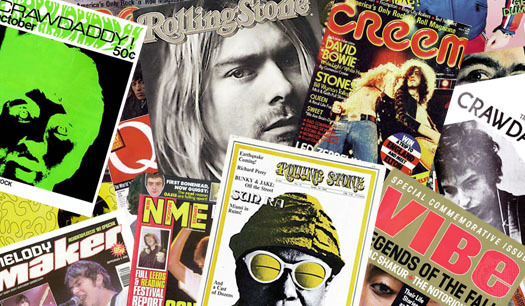
Of course this doesn’t help anybody. Most music journalists have their mental list of PR reps whom they like and trust and beyond that are often unlikely to go elsewhere. That’s the case for me, and that’s the case for many other journalists who I work with. That doesn’t mean that your band submitting on your own doesn’t have an outside chance of being included, but it is indeed a far outside chance. I think this should make it clear why it’s good to shell out for a PR company with something of a name behind them. Beyond that – I’m sure that by now that you’ve realized, there’s a lot of parallels here that reflect the music industry as a whole.
The thing is – music PR, like so many other things in the industry, was supposed to have been erased by the internet but in fact only saw it itself becoming a more important force. Now music PR is actually more important than ever, because PR, like a label, producer or a manager, serves to differentiate one band from the massive collective of content creators out there. Much like how you will check out a record if one of your favorite producers worked on it the same goes for music journalists with PR reps. We have reached a point in the history of content, not just the music industry, where the single greatest thing that anyone can do for your content is to help differentiate it from the masses of other stuff coming out. That’s not a reflection on the artists or the industry professionals, but merely how much stuff we all have to contend with in this day and age.
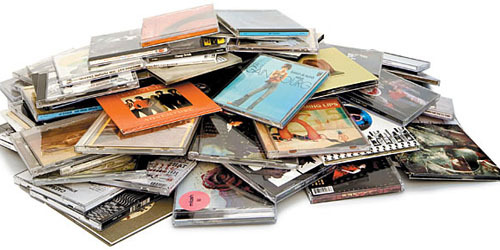
So – like everything else in the music industry – is this something that you can do on your own? Yes. Is this something that you should do on your own? No. Unless you have a very good idea how to do your own PR then this is something you should trust to a professional. Even if you, or someone in your band was a professional at one point unless they have an awesome network right now it still might not be worth doing – simply because a good agency is that valuable and generates a ton of good coverage that is necessary to making people believe in the image and potentially legendary status of your band. It’s only getting worse from here on out, but with a little hard work, and a lot of luck, you can help build towards a better tomorrow for your band through hiring a PR person you can trust.
Independent Music Promotions’ (www.independentmusicpromotions.com) revolutionary music PR campaigns are the most effective in the industry. Submit your music to us today.
The post Music PR Is A Nightmare – What You Need To Know appeared first on Independent Music Promotions.




